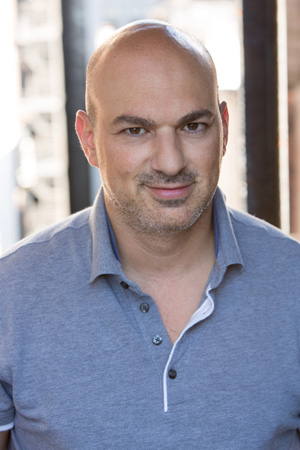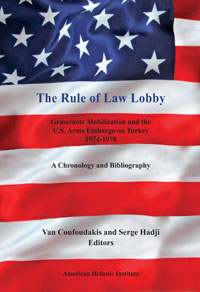Alumnus Alex Vratskidis is one of Greece’s most respected entrepreneurs. He was a founder and CEO for the marketing technology company Upstream for more than twelve years. In 2012 he left to found his current company, Persado, which is emerging as a leader in Marketing Persuasion Technology. He lives in New York, USA.
How did Anatolia prepare you for studies at Columbia University? Was the transition from Greek to American student life difficult?
I didn’t have much trouble adjusting to life in the US. My father encouraged me from the beginning to aim for a top school, so when I was accepted at Columbia, I felt that I could go the distance. Anatolia gave me access to information about many colleges and how college life might be. And of course having a peer group that was also going to the States for college made a big difference. The strong mathematics curriculum gave me an edge in my studies, but ironically I had to re-learn some of the basic terminology, using the English words rather than Greek!
Is there a particular lesson or memory from Anatolia that remains strong?
The years at Anatolia were some of the best years of my life, and my best friends today are those from our group in high school. The teachers were demanding and difficult sometimes, but for a good cause! Also the physical environment, and the athletics, stand out as great memories as I look back.
Entrepreneurship is growing quickly in Greece right now, with many young people considering the option of starting their own company. What advice do you have for them?
As tech entrepreneurs there are two paths, one starting in Greece, and the other one that probably begins elsewhere. To start a consumer or gaming tech business (for instance), Greece (or another small country) can be a fine place to launch, provided you have the right team and the right product. But for someone who wishes to make an Enterprise product, that is a tool or system that is targeted at large businesses, you need exposure and experience in modern business methods, project management, and sales in order to succeed. Greece, unfortunately, doesn’t have the environment to support this type of business. There are so few resources for entrepreneurs to call upon that it puts you at a disadvantage from the beginning.
What would you say to Anatolia’s students regarding their study and career options?
I would say the most important thing that young Greeks can do today is to take advantage of whatever opportunities they find, to get out of their comfort zone, and explore those things or subjects that inspire them. Do what you love, or excel at, not what is expected of you. Studying in the States (or any foreign country) will open not only your horizons but also your chances to gain valuable experience in the working world. This is an unfortunate time for Greece; hopefully within the next decade things will improve, but in the meantime young people have to grab at opportunities wherever they can. You can study Fine Art, for instance, and still get a job as a programmer – it’s all about building skills and rising to challenges. One you have some years of experience and knowledge about how the professional world works, you can build anything.



